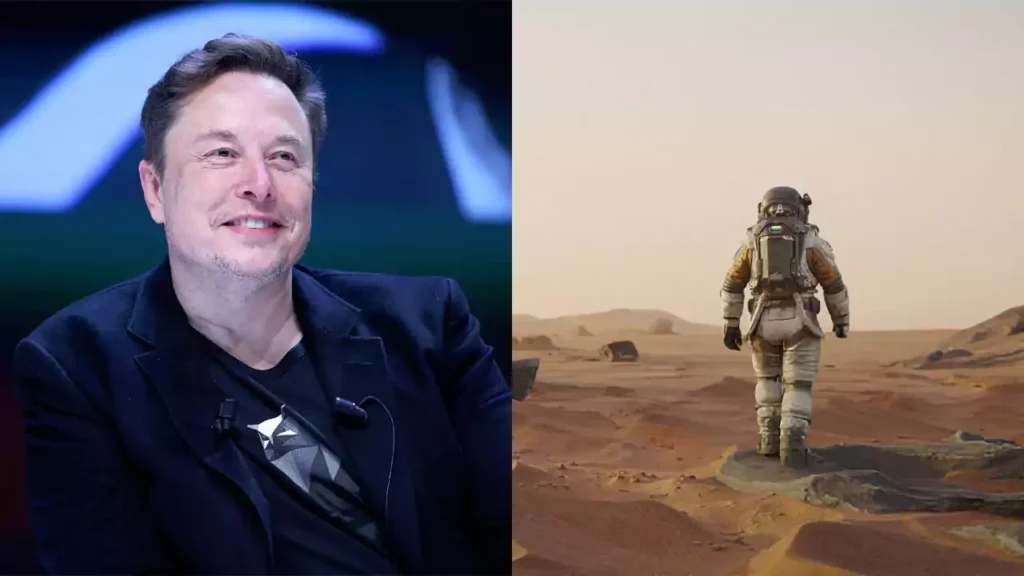Elon Musk Denies Offering Sperm for Mars Colony Seed
4 min read
Marc Piasecki/Getty Images
Elon Musk, the billionaire entrepreneur and father of 12, has recently denied claims that he volunteered to donate his sperm to help colonize Mars. These claims surfaced as part of a broader report detailing SpaceX’s ambitious plans to establish a human presence on the red planet. Musk, who has long been vocal about his vision for a multi-planetary human civilization, took to social media to refute the assertions.
Elon Musk: The Mars Colonization Plan
SpaceX, under Musk’s leadership, has been working diligently on plans to reach Mars. According to a report in The New York Times, Elon Musk has instructed SpaceX employees to design a city on Mars, complete with dome habitats and spacesuits to protect against the planet’s harsh environment. Additionally, a medical team is studying the feasibility of human reproduction on Mars.
NYT reports on Elon Musk's plan to colonize Mars. He hopes to have one million people living there within twenty years and has volunteered his sperm. Practically every company Musk has founded is to help with this mission, which involves bioengineering humans better capable of… pic.twitter.com/yy743ht4wr
— Richard Hanania (@RichardHanania) July 11, 2024
Despite these efforts, Musk has admitted that it could take 40 to 100 years to establish a self-sustaining civilization on Mars. However, he remains optimistic, telling SpaceX employees in April that he envisions one million people living on Mars within 20 years. Musk has even expressed a personal commitment to this vision, stating his desire to die on Mars.
Elon Musk: Denial of Sperm Donation Claims
The New York Times reported that Elon Musk had volunteered his sperm to support the establishment of a Martian colony. This information was supposedly shared by multiple sources familiar with the project. However, Elon Musk swiftly denied these claims on X (formerly Twitter), responding to a post that referenced the article by saying, “I have not fwiw ‘volunteered my sperm,’” followed by a laughing emoji.
Best to hear it in the words I have used in many interviews over the years.
— Elon Musk (@elonmusk) July 11, 2024
I have not fwiw “volunteered my sperm” 😂
No one at SpaceX has been directed to work on a Mars city. When people have asked to do so, I’ve said we need to focus on getting there first.
Technical and Logistical Challenges
Human colonization of Mars presents numerous challenges. The planet’s barren terrain, icy temperatures, frequent dust storms, and unbreathable atmosphere pose significant obstacles. NASA has stated that humans are not expected to land on Mars until at least the 2040s. In the meantime, SpaceX continues to explore how life could be sustained on Mars, including harvesting ice to produce water and identifying suitable locations for building colonies.
Musk’s companies are heavily involved in making his Mars vision a reality. For instance, The Boring Company could be used to drill into Mars’ surface, while Tesla could provide vehicles, potentially resembling the Cybertruck, for transportation on the planet. Social media platform X could also play a role in governing a future Martian society.
— Elon Musk (@elonmusk) October 29, 2023
Public and Expert Reactions
The ambitious plan has garnered mixed reactions. Aerospace Engineer Robert Zubrin told The Times, “You can’t just land one million people on Mars.” Critics argue that the technical and logistical challenges are too great, while supporters believe in Musk’s ability to push the boundaries of space exploration.
Musk’s vision is rooted in his belief in pronatalism, the idea that promoting human reproduction is essential for civilization’s future. He has frequently spoken about an “underpopulation crisis” on Earth, emphasizing the need for higher birth rates to avoid societal collapse. This belief has driven his personal decisions, as seen in his large family and public statements.
While the idea of Elon Musk donating his sperm to seed a colony on Mars makes for a sensational headline, the entrepreneur himself has denied such claims. What remains clear is Musk’s unwavering commitment to the goal of making humanity a multi-planetary species. As SpaceX continues to push the boundaries of space travel, the dream of living on Mars, though distant, remains a central focus of Musk’s ambitious vision for the future.



